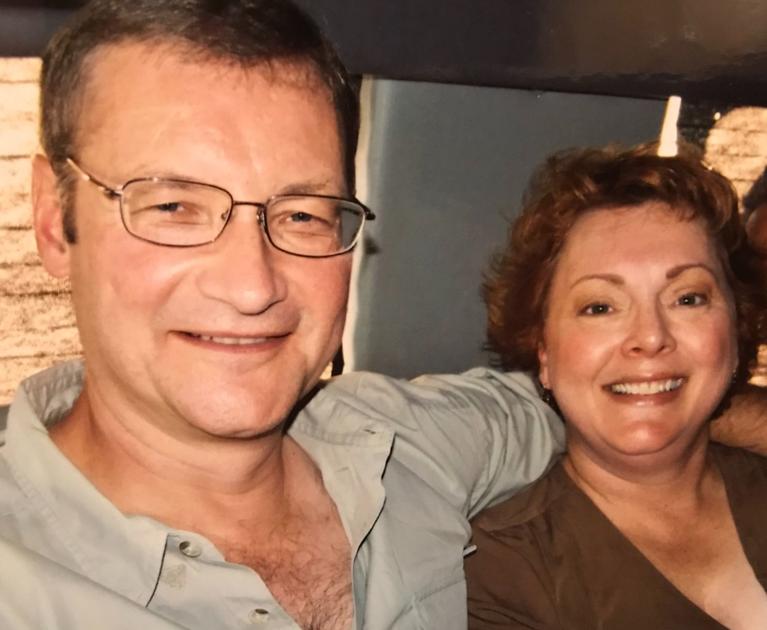
30 Dec Citizens of the Year: In this addiction crisis, parents turn their own pain into helping others | Beyond the Stigma
The state medical examiner’s office projects that when the final numbers are in, 437 Granite Staters will have died from drug overdoses in 2018.
Every one of them was someone’s child.
This year, the New Hampshire Union Leader and Sunday News honor the Parents of the Addiction Crisis as its Citizens of the Year. The selection honors parents who have lost children to overdoses — and others whose loved ones have found recovery — but who are striving to help other families find hope and healing.
Most do that work quietly, out of public view. They run support groups and volunteer at recovery centers. They raise their grandchildren, postponing retirement in favor of parenting a second time around.
Others have shared their stories publicly, reaching out in hopes of sparing other families their grief.
After their son Carl died of a fentanyl overdose in 2014, Susan and John Messinger of Holderness were determined to save other parents from the same agony. Carl was 24 years old and in recovery when a doctor prescribed cough medicine for an upper respiratory infection. Unaware that the medicine contained codeine, an opioid, Carl relapsed and died of an overdose less than a month later.
The Messingers began making regular visits to Plymouth House, a 12-step-based treatment center, where they talked with residents about their son and implored them not to hurt their own parents the way they have suffered.
They also worked with Rep. Annie Kuster, D-N.H., on legislation to require drugmakers to clearly label medications that contain opioids and warn they could lead to addiction. “Carl’s Law” was introduced in 2016; Sen. Jeanne Shaheen, D-N.H., and then-Sen. Kelly Ayotte, R-N.H., sponsored a companion bill in the Senate.
Susan Messinger testified twice before Congressional committees on the bill. But four years after Carl’s death, there is still no labeling requirement.
Here’s what drives her activism, Messinger said: “The pain is so raw and hurtful, even after four years, that I did not want to see another family go through what we’re dealing with. It’s not right to lose your child.”
“It may look like we’re OK; you see us in the grocery store, Walmart, wherever. We’re there, we’re putting one foot in front of the other; we may have a smile on our face that day or we may look sad,” she said. “But our heart is broken inside and it’s never, ever, ever going to be together again.”
In October, John Messinger, a popular local dentist and avid hiker, suffered a heart attack while kayak racing with friends in Connecticut; he died at a hospital minutes after his wife arrived at his bedside. In his obituary, Susan Messinger wrote, “This is not what we planned and it wasn’t supposed to end this way. I love you honey! Take care of Carl.”
‘Angels of Addictions’

At a recent summit on the opioid epidemic, hosted by Catholic Medical Center, providers were drawn to an exhibit of Zanfagna’s “Angels of Addictions” portraits.
The same week that Carl Messinger died, Jim and Anne Marie Zanfagna of Plaistow lost their youngest daughter, Jacqueline, to a heroin overdose. She was 25.
An artist, Anne Marie Zanfagna poured all her love and grief into a portrait of her daughter, beautiful and bathed in purple light. When she brought it to show her support group, other parents asked her to paint their lost children as well.
Before long, requests began coming in from around the country; Zanfagna has now done more than 180 “Angels of Addictions” portraits, all in vivid, bright colors.
The Zanfagnas also have created a nonprofit (www.angelsofaddictions.org) with a mission to “raise awareness of the opioid epidemic and eradicate stigma associated with addiction.” They do presentations at schools and public events; they most recently appeared at a summit on the opioid epidemic that was hosted by Catholic Medical Center.
Anne Marie Zanfagna said her goal is to “open eyes” with her paintings about what is being lost in this epidemic, and how to help. And her husband said he wants other parents “to know that they’re not alone.”
Jim Zanfagna tells people to reach out to neighbors and relatives to talk about addiction and its perils. “Speak about this,” he said. “Let people know what’s going on. Maybe we can save some lives.”
Speaking about his daughter always brings him to tears, he said, but he doesn’t sugar-coat the danger when they speak to school groups. He points to his wife’s vivid paintings, which they display on stage. “Look at these portraits,” he tells the students. “They’re good kids, full of potential. Wonderful kids, but they made one bad decision.
“Now look at them: They’re bright, colorful people, but they’re all dead.”
Shaheen hosted an exhibit of Zanfagna’s “Angels of Addictions” portraits in the rotunda of the U.S. Capitol in October. In an email, Shaheen told the New Hampshire Union Leader that she has been struck by the “resilience and bravery” of New Hampshire parents who have lost their children to the opioid epidemic.
“So many families have courageously shared their experience of losing a loved one, which has been instrumental in destigmatizing substance use disorders and raising awareness of the magnitude of this crisis,” she said. “I deeply appreciate their advocacy and will continue to work with them to end this scourge on our state and our country.”
‘A fight you can’t win’

Charles “Chucky” Rosa walks out of the water with Gov. Chris Sununu during his annual “Freezin’ for a Reason” fundraising plunge at Hampton Beach on Saturday. Rosa has lost two sons to drug overdoses.
Charles “Chucky” Rosa of Seabrook lost two sons, Vincent and Domenic, to drug overdoses more than a decade ago. A former boxer, he speaks candidly at schools and public forums about the dangers of substance use. “I try to teach young people: Don’t get into a fight that you can’t win,” he said.
His nonprofit organization, Chucky’s Fight (www.chuckysfight.com), raises money for scholarships for individuals coming out of rehab to get into sober housing. Rosa also runs a weekly support group in his town and supervises drug court participants on community service projects.
And every day since he scattered his sons’ ashes in the Atlantic Ocean, Rosa has observed a daily ritual of plunging into the sea to remember and honor them, even on the most bitter of winter days. Once a year, he holds a fundraising event, Freezin’ for a Reason, inviting others to join him in the frigid dip; this year’s event was held Saturday.
Rosa said everyone has been affected in some way by the opioid crisis. “I used to be the only member of the club that nobody wants to be part of,” he said. “Now there’s so many people that have lost children. …”
Going it alone
Susan Messinger said she’s taking a break from her advocacy work, still reeling from the sudden loss of her husband just one day after they celebrated their 34th wedding anniversary. She had raced to her husband’s bedside in Connecticut after a Holderness police officer came to her home to tell her that John had been in a kayaking accident and was in “grave” condition.
“He died 15 minutes after I got there,” she said. “I’d like to think he was waiting for me to come and say goodbye.”
She said she’s grateful that John lived to see the 40-year-old Plymouth man who sold the lethal dose of fentanyl to their son plead guilty and be sent to prison in August. She said she had tracked him down from text messages on her son’s cellphone the night of his death, and through social media, and turned the information over to police.
She’s thinking of moving back to her hometown of Buffalo, N.Y., where her family still lives. Her younger son, Adam, is in college and it’s too difficult, she said, to stay alone in the big house where she and John lived and loved.
Messinger wants those struggling with addiction “to know that you don’t have to have this kind of life,” she said. “And that you may think this only affects you because you’re putting this poison into your body, but let me tell you, it affects every person you’ve ever touched.”
There were 250 people at Carl’s celebration of life service, she said. “And I’m sure that he did not know that he had touched so many people’s lives.”
When she hears people talk about throwing their kids out because of their addiction, she said, “I want to shake that parent and say, you go and you scoop him up and you get him to the nearest detox and you support that kid.
“Because once they’re gone, there’s no coming back and it’s too late,” she said, her voice cracking. “If you blow this chance, you’re never going to see your child again until you die.”
Messinger said she’ll keep pushing for Carl’s Law. “I’m in this fight until the day I take my last breath,” she said.
[ad_2]
Source link



No Comments